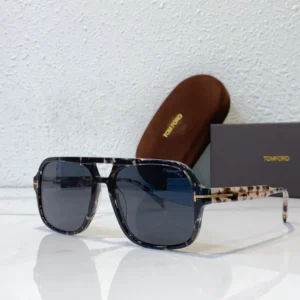Unlock Vision’s Shield: The Power of Anti-Blue Eyewear
In today’s digital age, screens and devices constantly bombard us with blue light, exposing our eyes to prolonged periods of high-energy visible (HEV) light from smartphones, tablets, computers, and televisions.
Although blue light is a natural part of sunlight and plays a crucial role in regulating our sleep-wake cycle, excessive exposure can negatively impact our eye health and overall well-being.
Specifically, an overabundance of blue light from screens can lead to various eye problems, such as eye strain, dry eyes, and even damage to the eye’s center. Eye strain, for example, occurs after prolonged screen use, manifesting as tired eyes, blurry vision, headaches, and neck or shoulder pain. Essentially, screens force our eyes to work harder, leading to these discomforts.
Furthermore, excessive screen time is a common cause of dry eyes. This is because, when focusing on screens, we blink less frequently, leading to increased dryness and irritation.
Additionally, blue light exacerbates these issues by promoting the production of reactive oxygen species, which can damage the surface of the eyes and intensify dry eye symptoms.
Moreover, blue light poses a risk to the macula, a critical part of our eyes responsible for clear vision. Overexposure can harm this area, potentially leading to a decline in vision quality over time. This condition, known as age-related macular degeneration (AMD), is a prevalent cause of vision loss among older adults.
Anti-blue sunglasses and eyeglasses
To protect our eyes, many choose anti-blue sunglasses and eyeglasses. These eyewear block a lot of blue light. This lessens eye strain and lowers the chance of eye problems. You can find anti-blue glasses in many styles and strengths, so it’s easy to find the right pair.
Wearing anti-blue glasses at night can also help us sleep better. Blue light at night can mess with our sleep cycle by affecting melatonin, the sleep hormone. Anti-blue glasses reduce blue light’s impact, helping us sleep well.

Photo by Sunglasstour.ru
As we use screens more, taking care of our eyes gets more important. Buying anti-blue sunglasses or eyeglasses helps protect our vision and health in today’s digital world.
Understanding Blue Light
Blue light is a type of light with short waves. It has more energy than other colors, which can be good and bad. Sunlight gives us natural blue light. It makes us feel better, stay alert, and keeps our body clock in check. But, blue light from gadgets can mess up our sleep, tire our eyes, and may harm our eyes over time.

Using electronic devices is now a big part of our daily life. We use smartphones, tablets, laptops, and TVs a lot. These devices give off blue light, which can be a concern for our health over time.
One big worry is how blue light affects our sleep. Our bodies have a sleep-wake cycle called the circadian rhythm. Blue light can stop the production of melatonin, a sleep hormone. This might make it hard to sleep, lower sleep quality, and lead to insomnia.
Also, looking at screens for too long can strain our eyes. Symptoms like dry eyes, blurry vision, and headaches can happen. Our eyes work extra hard to see the blue light from screens. Over time, this can lead to eye strain or computer vision syndrome.
There’s also concern about damage to our retinas. The retina has cells that turn light into signals for the brain. Too much blue light can harm these cells. This might increase the risk of eye diseases like age-related macular degeneration (AMD).
What we can do?
To protect against blue light, we can use filters or screen protectors on our devices. These reduce the blue light from screens. It’s also good to cut down on screen time, especially before bed. Stopping screen use an hour before sleep can help our bodies make melatonin for better sleep.
Even though sunlight’s blue light is beneficial, the blue light from devices can be harmful. By knowing the risks and taking steps to lessen exposure, we can protect our eyes, sleep, and health in this digital age.
The Effects of Blue Light on Eye Health
Extended exposure to blue light can lead to various eye problems, including:
- Eye Strain:Looking at screens for a long time can make your eyes tired. This is called digital eye strain. You might get dry eyes, blurry vision, headaches, and pain in your neck and shoulders. This happens because the blue light from devices like smartphones and computers is strong and scatters easily. It makes your eye muscles work hard to stay focused. This hard work can make your eyes feel strained and sore.
- Disrupted Sleep:Blue light at night can mess up our sleep. It stops melatonin, our sleep hormone, from being made. Normally, our bodies make melatonin at night to tell us it’s time to sleep. But, blue light from screens can stop this. So, it’s harder to fall asleep, which can cause insomnia or bad sleep.
- Macular Degeneration:Too much blue light can lead to eye problems in older adults, like AMD, which causes vision loss. AMD damages the macula, a part of the eye that helps us see straight ahead. Studies say blue light from devices can harm these eye cells, raising the risk of AMD as we get older. It’s important to protect our eyes from too much blue light, especially with age.
How Anti-Blue Sunglasses and Eyeglasses Work
Anti-blue glasses effectively filter out harmful blue light from screens and devices. Moreover, they feature special lenses designed to block or absorb blue light, making these glasses available in both prescription and non-prescription forms, suitable for anyone seeking eye protection.
Additionally, blue light from gadgets and screens can strain our eyes and disrupt our sleep by impacting melatonin, our sleep hormone. Consequently, anti-blue glasses mitigate this light, diminishing its adverse effects.
Furthermore, these eyewear are particularly beneficial for individuals who frequently use screens, such as office workers, students, and gamers. They not only prevent eye strain but also shield against long-term eye damage.
However, it’s important to note that these glasses should be part of a broader strategy for maintaining eye health. Practices such as taking regular breaks, shifting gaze away from screens periodically, and ensuring proper lighting are equally essential.
In summary, anti-blue eyewear offer protection against the glare of screen light, easing eye strain and enhancing sleep quality. Integrating them into our daily lives, along with other healthy habits, represents a wise approach to safeguarding our eyes in today’s digital age.
The Benefits of Anti-Blue Sunglasses and Eyeglasses
Investing in a pair of anti-blue sunglasses or eyeglasses can offer several benefits:
- Reduced Eye Strain:These glasses block blue light, easing eye strain symptoms like dryness and tiredness. They’re great for people who use screens a lot, like office workers and students. Less eye strain means more productivity and comfort.
- Improved Sleep Quality:Wearing anti-blue glasses at night can help you sleep better. They cut down blue light from screens and lights, helping make melatonin, our sleep hormone. Too much blue light can make it hard to sleep well. With these glasses, you can sleep deeper and wake up feeling fresh.
- Protection for Retinal Health:Blocking blue light helps protect against retina damage, like macular degeneration. Too much blue light from the sun and screens can lead to eye problems as we get older. Anti-blue glasses shield your eyes from this harmful light, keeping your eyes healthy over time.
- Enhanced Visual Clarity:Anti-blue glasses make things look clearer and less shiny, giving you better and more comfortable vision on screens. Blue light spreads out and blurs vision, making it hard to see well. With anti-blue glasses, you see more clearly. This makes reading, working, and driving easier and less tiring for your eyes.
Overall, buying anti-blue glasses can really help your eyes, sleep, and comfort. They are good for people who often use screens or just want to protect their eyes from blue light. It’s a smart choice.
Choosing the Right Anti-Blue Sunglasses or Eyeglasses
When selecting anti-blue sunglasses or eyeglasses, there are several factors to consider to ensure you find the perfect pair that meets your needs.
Blue Light Filtering: One of the most important features in anti-blue glasses is their blue light filtration. Electronic devices and the sun emit blue light. Excessive exposure can cause eye strain, fatigue, and potential retinal damage. It’s vital to choose glasses that block or absorb at least 50% of blue light, especially in the 400-450 nanometer range, where it’s most harmful.
UV Protection: In addition to blue light filtering, it is essential to ensure that the lenses of your anti-blue glasses offer 100% UV protection. Ultraviolet (UV) rays from the sun can cause various eye problems, including cataracts, macular degeneration, and even cancer. By wearing glasses with proper UV protection, you can shield your eyes from these harmful rays and reduce the risk of developing these conditions.
Comfort and Fit: Another crucial aspect to consider when choosing anti-blue glasses is their comfort and fit. Since you will likely be wearing them for extended periods, it is important to select frames that are comfortable and do not cause any discomfort or pressure on your nose or ears. Additionally, the glasses should fit well on your face to ensure optimal protection and prevent any light from entering through the sides.
Prescription Needs:
So If you need glasses to see better, then choose anti-blue glasses that fit your prescription. Many people need glasses for seeing close, far, or for astigmatism. It’s important to pick anti-blue glasses that match your prescription. This way, you can block blue light and still see clearly.
Conclusion
Then let’s do a conclusion. When choosing anti-blue sunglasses or eyeglasses, consider these tips. You’ll find the best pair for protection, comfort, and clear vision. If you work long hours on a computer or love being outdoors, buying high-quality anti-blue glasses is smart. They protect your eyes and keep them healthy in our digital world.